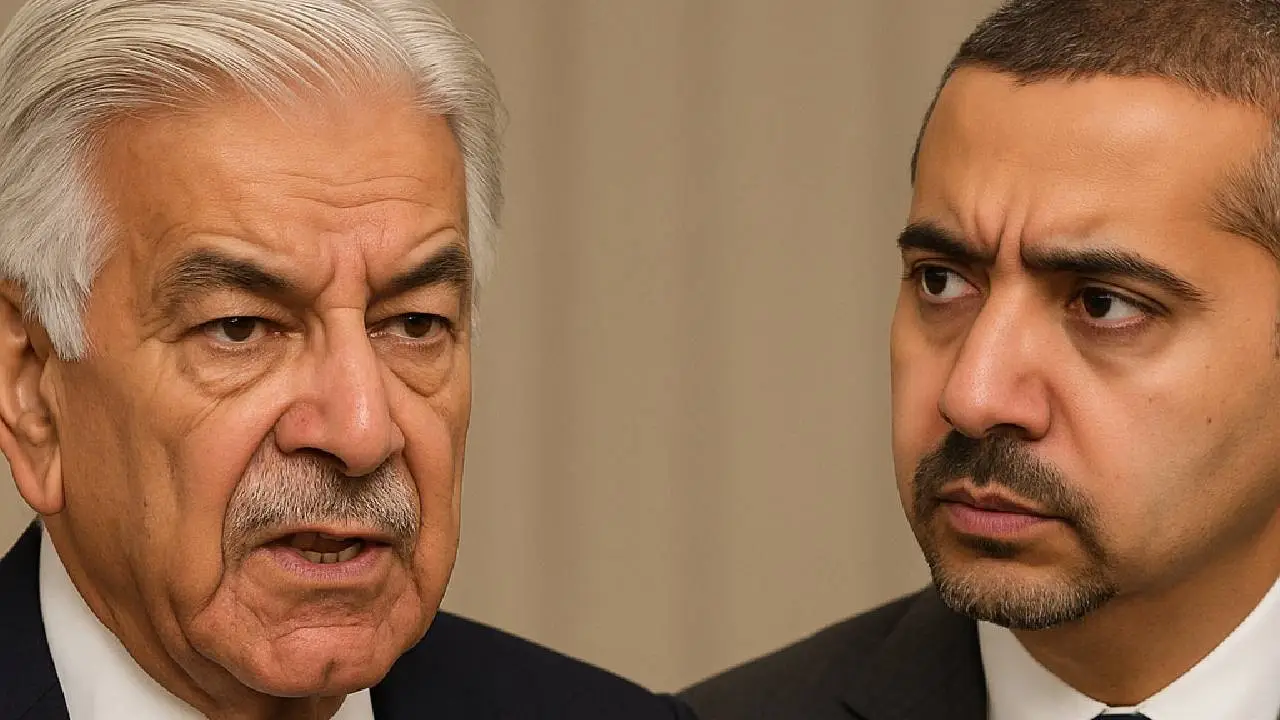
Credit:Top Indian News (Credit:Top Indian News)
International News: In Pakistan’s politics, the role of the military has always been questioned. From coups to martial law, the army has shaped governments for decades. Yet, Defence Minister Khawaja Asif insists the present situation is different. In a detailed interview, he argued that the army no longer has overwhelming power. He presented himself as a political worker appointed through a legitimate process. His words were challenged by Mehdi Hasan, who reminded him of repeated military dominance in governance.
The British-American journalist Mehdi Hasan directly confronted Asif. He argued that Pakistan’s Army Chief Asim Munir holds more authority than Asif himself. Hasan suggested that Pakistan’s system is tilted towards the generals rather than elected leaders. Asif denied this claim and insisted political leaders still matter. He highlighted that he works as a political representative, not as someone controlled by the army. The debate revealed sharp differences between perception and Asif’s explanation.
When questioned further, Asif drew comparisons with the United States. He claimed even US democracy is run by a “deep state.” He said their model hides power while Pakistan’s military role is more visible. He added that the history of military rulers in Pakistan makes people assume army control is stronger. His remark echoed past comments of Donald Trump, who has often accused Washington of being run by deep state forces. This sparked fresh debate about Asif’s stance.
Asif argued that earlier governments allowed the deep state to dominate. He blamed political leaders of the past for compromising civilian authority. According to him, the hybrid setup today is necessary for survival. He called it a “practical necessity” that has delivered results. Critics say such justifications weaken democratic accountability. Supporters of Asif believe he is being realistic in admitting Pakistan’s political limitations. The minister framed his argument as continuity, not surrender.
Asif described Pakistan’s governance as a “hybrid system.” He claimed it balances political leadership with military involvement. He defended this model by calling it effective and practical. In his view, both institutions work through consensus rather than conflict. Hasan, however, asked him who holds the last word in disagreements. Asif’s answer was vague, suggesting mutual understanding rather than clear supremacy. This exchange highlighted Pakistan’s ongoing struggle with defining democratic authority.
During the conversation, Mehdi Hasan pressed harder on authority issues. He asked what happens if Asif and Army Chief Asim Munir disagree. Asif avoided giving a direct answer. He said decisions are made by consensus, not force. But many saw this as an indirect admission that the army has influence. Observers believe the lack of clarity exposes the weakness of civilian politicians. The debate reflected the uneasy balance of Pakistan’s power-sharing model.
Earlier this year, Asif faced criticism at the United Nations. While speaking on artificial intelligence in warfare, he fumbled repeatedly. He mentioned “Operation Sindoor” and confused timelines of India-Pakistan tensions. This mistake was widely discussed in media. It added to doubts about his command over sensitive subjects. Linking this with his latest remarks, critics argue Pakistan’s defence leadership appears inconsistent. Supporters defend him as a politician under pressure, not a military dictator.





Copyright © 2025 Top Indian News
